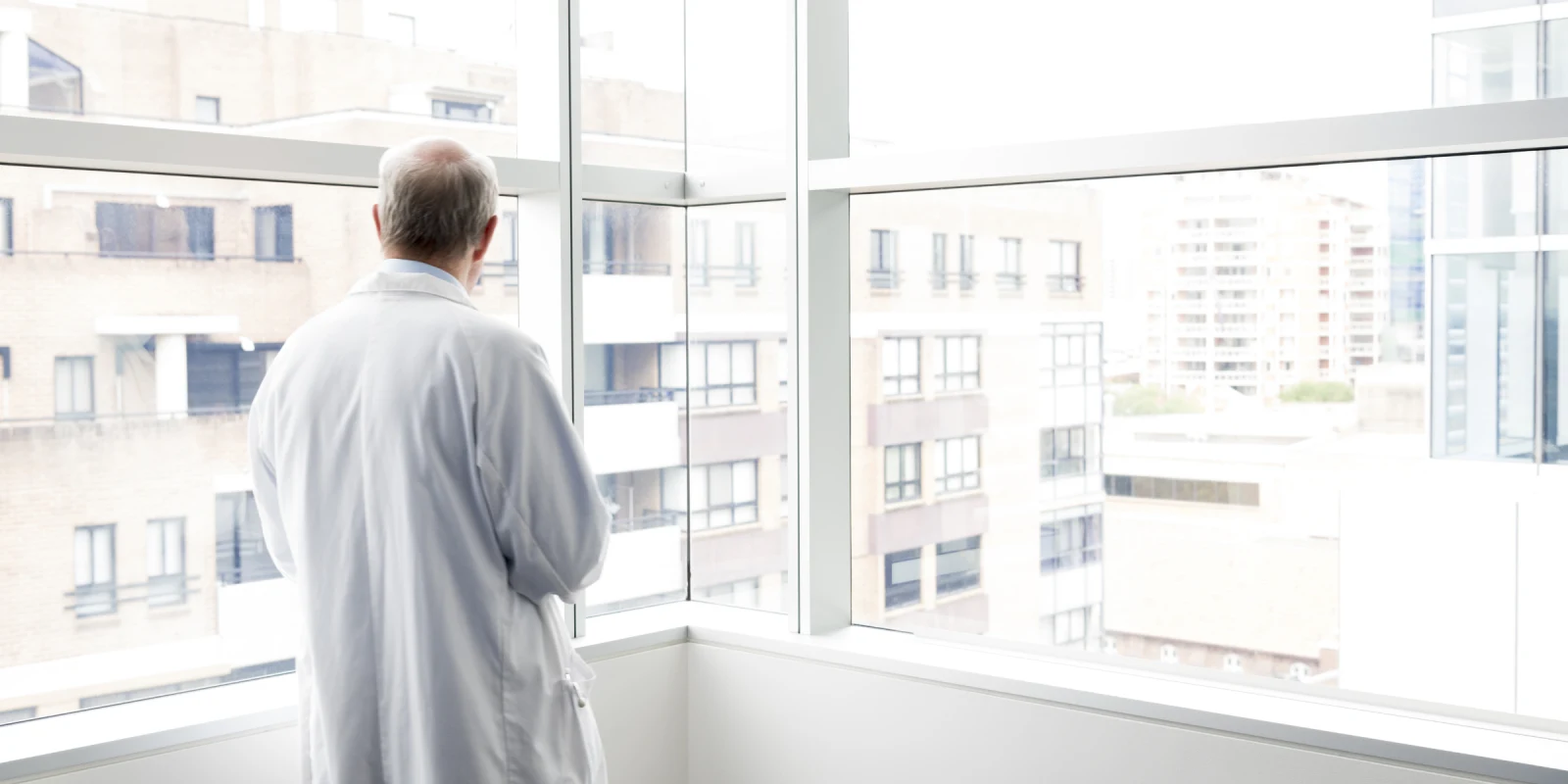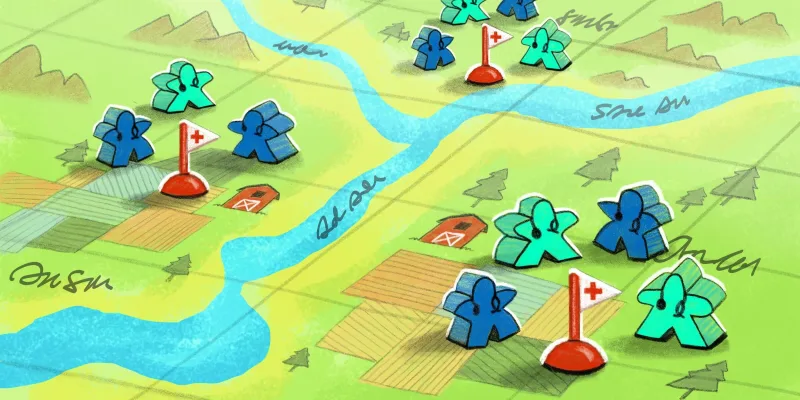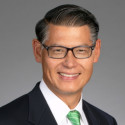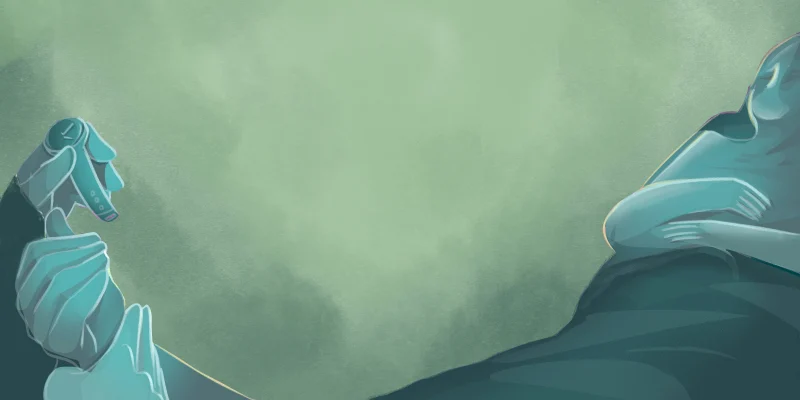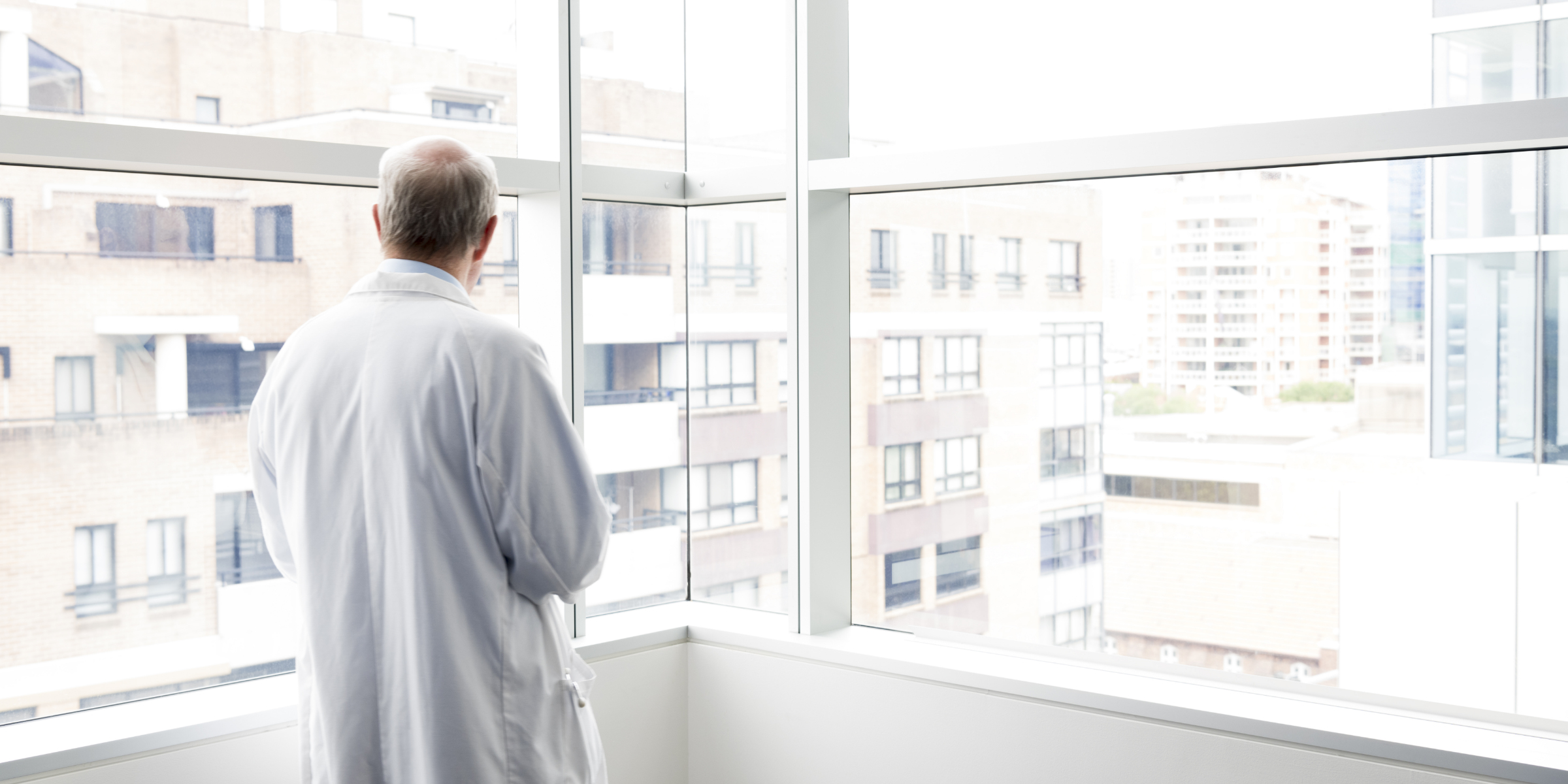
Whenever I pictured myself as a physician (well before I became one), I would frequently imagine myself in various situations “saving the day.” In one scenario, I came up with a brilliant diagnosis that eluded others. In another, I performed CPR to save a life. Another involved connecting on a personal level and giving life-altering advice to a teen patient in distress. Yet another involved serving the disenfranchised in a crisis situation, often in an impoverished nation.
But rarely did any of those scenarios involve me putting my life on the line to provide care. I never saw myself going to the front lines of a war to save soldiers’ lives, or traveling to a jungle to treat patients infected with an emerging, deadly pathogen. I don’t think I was particularly afraid of those situations — those scenarios just didn’t manifest naturally in my mind, much like I never pictured myself performing surgery or peering through a microscope at the lab bench discovering the cure for cancer.
A few of the scenarios I imagined did actually occur. I have treated patients in an impoverished nation. I also performed CPR on a stricken man while I was out taking a walk. Now, I am being called on to put my own life on the line to treat COVID-19 patients. And I’m not going to do it. Because it will kill me. My state has asked all health care workers to volunteer to treat COVID-19 patients, should volunteers be needed during the coming surge. My local hospital has also asked for volunteers.
I’ve written about my health issues on Doximity before (here, and here), but the short explanation is that my health concerns led me to withdraw from in-person clinical care well before COVID-19 came along. Of the multiple risk factors most associated with fatal outcomes in COVID-19, I have three: diabetes, coronary artery disease, and chronic lung disease. In addition, I am immunocompromised after having a stem cell transplant. And two years ago, a simple unidentifiable respiratory virus further damaged my lungs so that now I need oxygen to exercise and sleep at night.
Given all of that, I’m not just refusing to treat COVID patients — I’m largely refusing to leave my home, afraid that simply living during these times is dangerous for me. I’ve been committed to sheltering at home: I’ve not gone into a grocery store, or anywhere else, except to take some walks outside and go to the hospital as a patient. Of course, it’s just my luck that soon after my state instituted a shelter-at-home policy, I experienced angina with exertion for the first time. I ultimately needed two stents and a balloon angioplasty on two successive days in the cath lab. I had a mild cold when I was admitted to the hospital, so I wound up waiting for two days on the COVID-19 floor until my test came back negative. Fortunately, at that time, the COVID floor was mostly full of “rule-out cases,” as this was before the surge occurred in our area. Only after the negative test could I go to the cath lab, but it all worked out in the end.
The title of this essay is apt: I still feel a little guilty that I can’t help. I see the sacrifices my co-workers and friends around the country are making, and I wish I could help. But I also realize that even without my health issues, my skills are better used elsewhere. I am a pediatrician and haven’t treated an older patient since medical school (in the 1980s). And this is, after all, a disease that seems to affects adults most acutely. I have devoted the last few years of my professional life to administrative tasks, and I have realized that I have some talent for that, so that’s what I’m focusing on now: helping my large supergroup of 70 providers handle this crisis. And I have been practicing a lot of telemedicine, too, which patients and parents are always extremely grateful for during this crisis.
So, I’m doing what I can, in a very small way. I am by no means a hero, as I’m not sacrificing, or even risking, anything. Many of you out on the front lines are actual heroes, putting your health and your lives on the line to treat patients. But for me, working with this type of patient would almost assuredly be the ultimate sacrifice, which I’m not willing to make. For now, I plan to do whatever I can to avoid it. I’m sure there are others in my situation — and even others who are healthy and still choosing not to work with COVID-19 patients — and we all have our reasons. I applaud those of you who are doing such selfless work. I wish I could help. But I’m going to sit this one out.
A practicing pediatrician for over 26 years, Dr. Ruben J. Rucoba currently serves as Director of Medical Services for PediaTrust, a large pediatric "supergroup" in the Chicago area. He also established his own thriving medical writing and editing business in 2010. He has no conflicts of interest to declare. Dr. Rucoba is a 2019–2020 Doximity Fellow.
Click here to see more perspectives on COVID-19 from the Doximity network.
Click here for up-to-date news about COVID-19 on Doximity.
